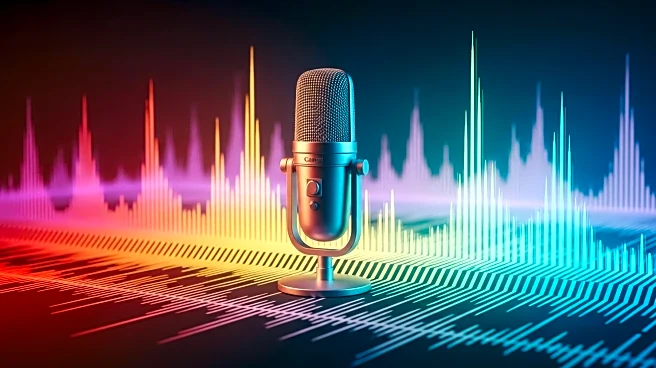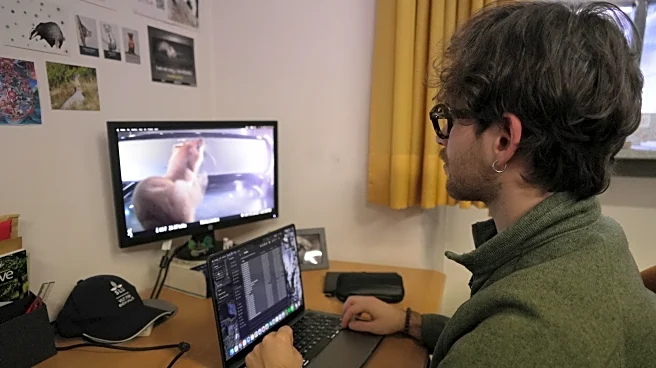What's Happening?
Artificial intelligence tools, including ChatGPT, Gemini, and Microsoft's Copilot, have compiled lists of the catchiest songs of all time. These lists feature popular tracks such as Spice Girls' 'Wannabe,' Lou Bega's 'Mambo No. 5,' and Bon Jovi's 'Livin' on a Prayer.' The AI-generated lists are based on factors like repeated choruses, simple melodies, and strong beats, which contribute to a song's catchiness. DJs and music experts also weigh in, noting the importance of beats per minute and emotional connection in determining a song's appeal. The AI lists align with human experiences, as seen in dance floor reactions and DJ selections at events.
Why It's Important?
The identification of catchy songs by AI has implications for the music industry, influencing playlist creation and marketing strategies. As AI tools become more integrated into music streaming services, they can shape consumer preferences and drive trends. This technology offers insights into what makes music appealing, potentially guiding artists and producers in crafting hits. The overlap between AI-generated lists and human preferences suggests that AI can effectively capture cultural and emotional elements that resonate with audiences. This development may lead to more personalized music experiences and innovative approaches to engaging listeners.
What's Next?
The use of AI in music curation is likely to expand, with streaming platforms incorporating AI-generated playlists to enhance user engagement. Artists and producers may leverage AI insights to refine their creative processes, aiming to produce songs that align with identified catchy elements. As AI technology evolves, it could offer deeper analyses of music trends, helping industry stakeholders anticipate shifts in consumer tastes. Additionally, the collaboration between AI and human experts may lead to new methodologies for studying music's impact on emotions and behavior.
Beyond the Headlines
The integration of AI in music raises questions about the balance between technology and human creativity. While AI can identify patterns and preferences, the unique human touch in music creation remains irreplaceable. Ethical considerations also emerge regarding AI's role in shaping cultural norms and its potential influence on artistic expression. As AI tools become more prevalent, the music industry must navigate these challenges, ensuring that technology complements rather than overshadows human artistry.











